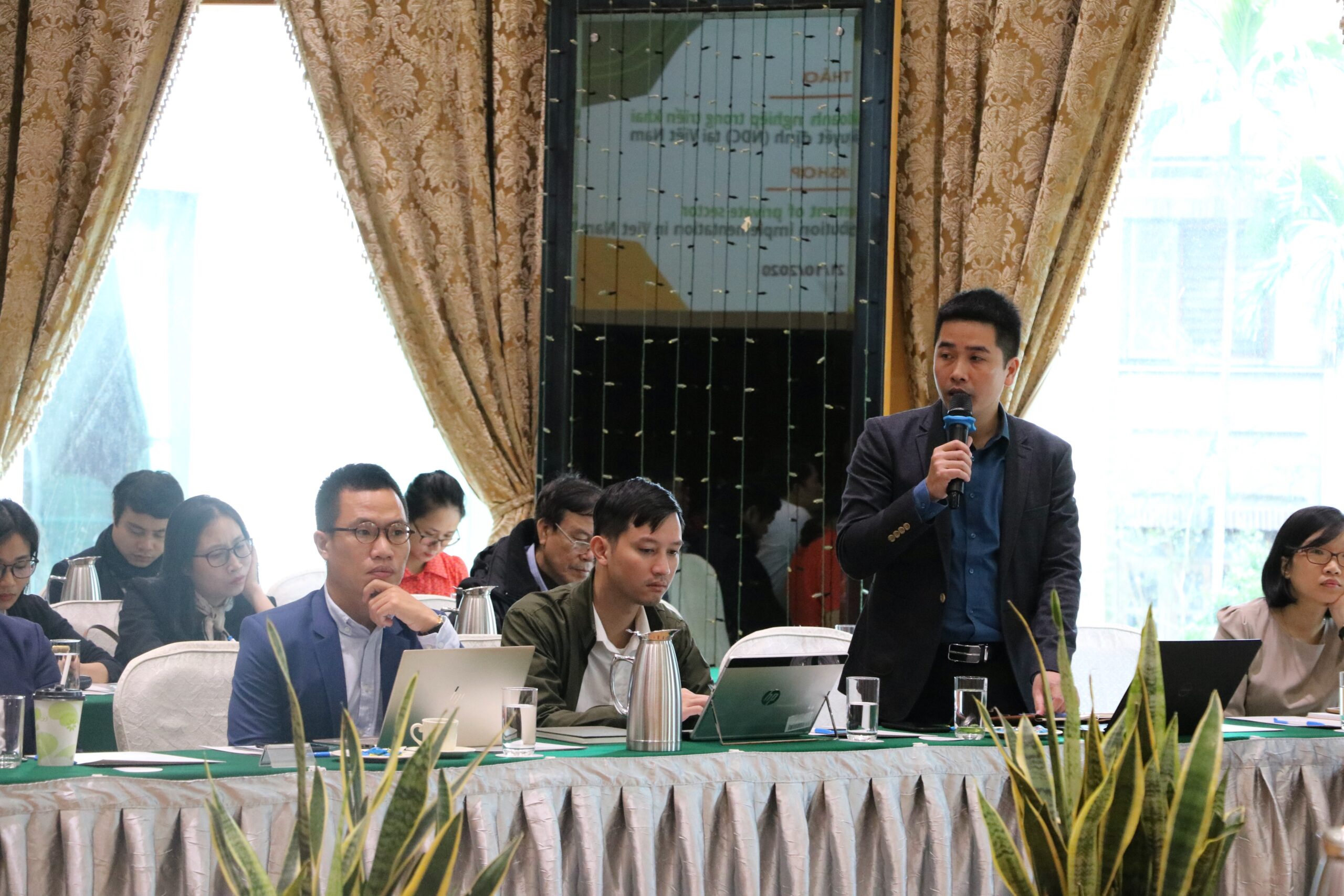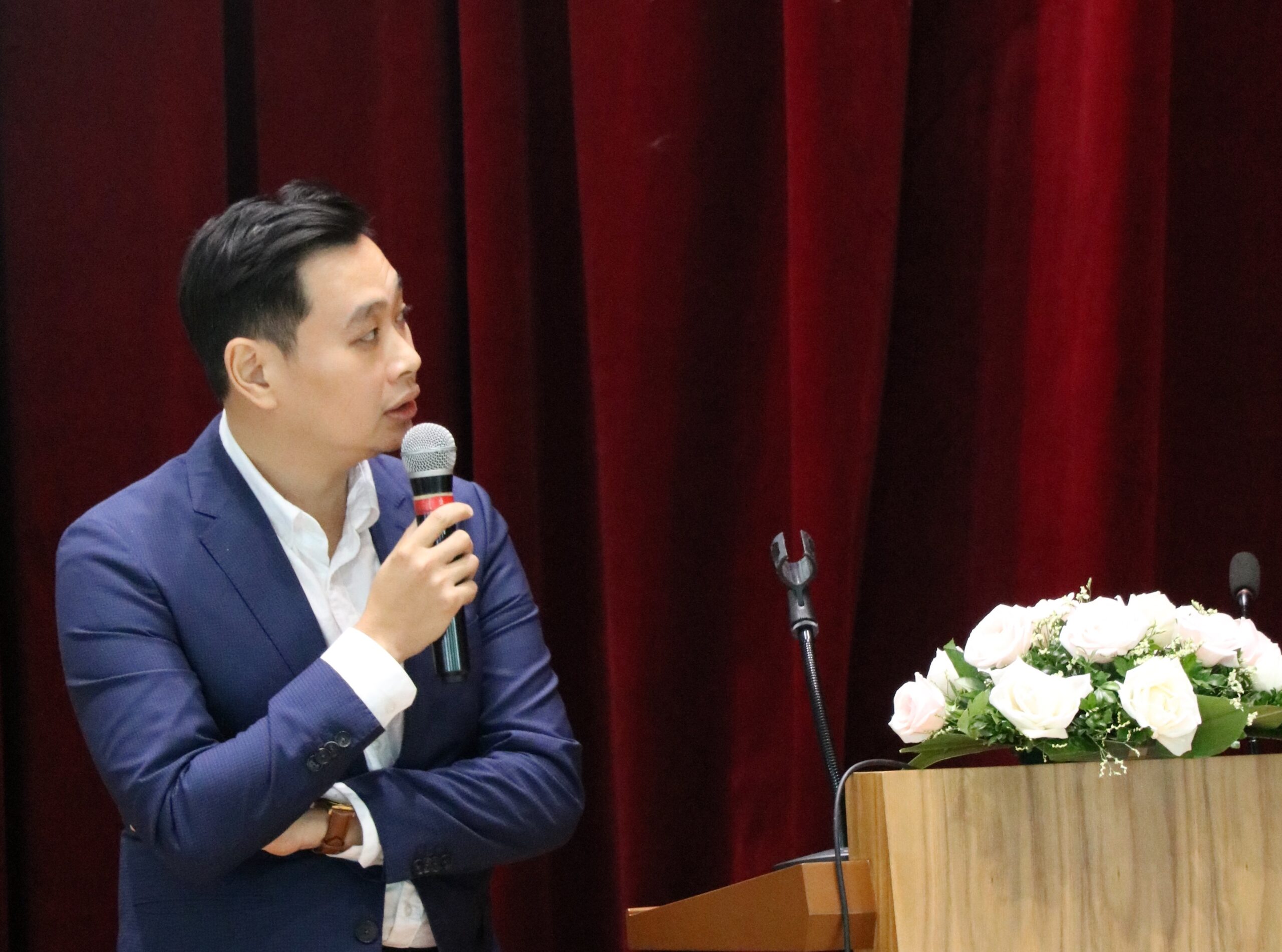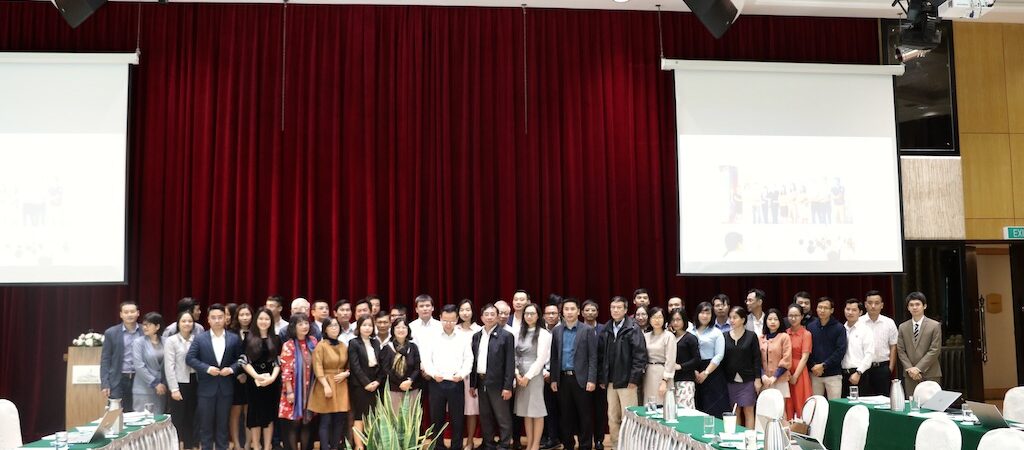We have heard of the consequences of climate change, but now seeing it with our own two eyes is a whole different story. The floods in Central Vietnam are one of the living evidence that climate change affects us in more ways than we think.
What we desperately need at the moment is a detailed course of action and the involvement of influential organizations. The event “Promoting Business Participation in Nationally Determined Contribution (NDC) Implementation in Vietnam” held by WWF in Hanoi aimed to share the contributions of countries and businesses in the fight against climate change then proposed the next steps.
Shire Oak International was one of the guest speakers in the energy sector. Attending panellists include:
- Ms. Chu Thanh Huong – Department of Climate Change – Ministry of Natural Resources and Environment
- Ms. Nguyen Thi Ha – VCCA Coordination Committee – GreenID
- Mr. Nguyen Hoang Lan – Representative of Vietnamese Small and Medium Enterprises
- Mr. Nguyen Hoang Tung – Shire Oak International Company in Vietnam
At the discussion, the experts shed light on several matters, including”
- Discuss the content of the Paris Agreement and NDC in Vietnam.
- Present concerns and challenges of businesses in responding to climate change, implementing the Paris Agreement and NDC.
- Discuss and analyze opportunities and solutions to promote businesses in climate change and implement the Paris Agreement and NDC period 2021 – 2030.
The first presentation began with Ms. Chu Thanh Hương detailing the content and ways to meet the Paris Agreement. For the 29 objectives stated in the agreement, she devised five primary missions, with 68 projects with three priority levels.
Next, Ms. Hương proposed keeping track of the International NDC. Even if we meet all INDC objectives, the global temperature might lower by 1C, but that would still mean 3C higher by the end of the century. That led to Decision 1 of COP21, requiring constant NDC update to raise our expectation for a livable planet.
As of now, Vietnam has made some progress on the NDC, implementing 79 measures, with 39 of them being energy-based measures. We have to accept that there is no way to meet the NDC without the transition to renewable energy. Other than that, with the consequences of climate change already surfacing, Vietnam needs to be prepared to protect vulnerable communities while boosting resilience in critical economic centers.
Furthermore, from 2021, the government is expected to micro-manage carbon emissions through the Bilateral Trade Agreement, which states a limit on the amount of emission for production purposes. This agreement will urge foreign businesses to be more conscious of their actions and their impacts on the planet. Experts speculated that such regulations would be the global trend in the next five years.
Notably, renewable energy, especially solar, is being favoured by the government. Currently, the price for solar energy is 9 cents/kWh while coal power costs 7 cents/kWh. Solar developers are more than welcome to invest in Vietnam, but that does not mean that coal-fired plants are closing any time soon.

It should also be mentioned that Vietnam has been an active player in the CDM market in the last ten years. Clean Development Mechanism (CDM) is a flexible financing mechanism under the Kyoto Protocol that allows countries with binding reduction targets to develop projects in developing countries. CDM allows emission-reduction projects that contribute to the host country’s sustainable development objectives to sell Certified Emission Reductions (CERs) resulting from CDM projects.
Asides from efforts from the government level, organizations like the VCCA and VINASME are also doing their part.
VINASME (Vietnam Small And Medium Enterprises Association) is educating its members to be aware of the effects of climate change and how to minimize their impact on the environment.
VCCA (Vietnam Coalition for Climate Action) is committed to supporting the government, existing networks, and entities to act on climate change and promote energy transition in Vietnam and globally.
VCCA’s cause is one Shire Oak International can join as the company is working closely with local governments to accelerate solar energy development. Being a renewable developer, Shire Oak International contributes not only through their business practice but also CSR activities. The company is sharing a part of their profit with local areas to improve their lives and is planning to build rooftop solar systems for public facilities in remote areas.

During the discussion, Shire Oak International shared a great deal of information about matters such as weather information in solar energy estimation, RTS systems utilization in Vietnam’s islands and coastal areas, and the sourcing of solar panels, etc.
To further explore solar panels and their applications, EPC provider Vũ Phong and Sơn Hà wrapped up the event with their presentations. The audience got to see the latest innovations and what happens to the panels once they are no longer useful.


